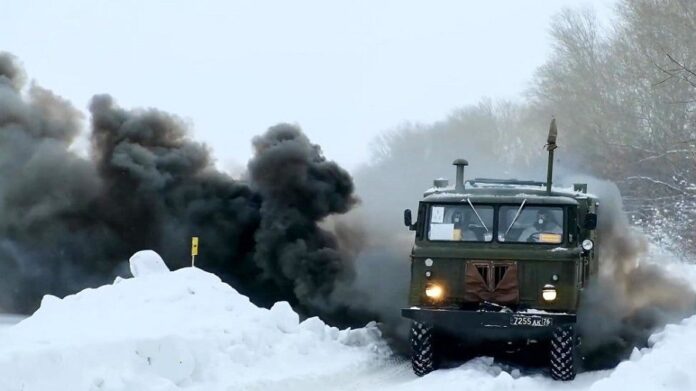Russia on Thursday is set to begin 10 days of military exercises with its neighbor Belarus as tensions remain high over a large build-up of troops along its border with Ukraine, according to CNBC.
Around 30,000 Russian troops are believed to be in Belarus to take part in the exercises, according to NATO, which has said the drills are the biggest Russian deployment there since the Cold War.
The drills, which Russia has said are primarily aimed at practicing ways to repel “external aggression” are widely seen as a show of strength by Russia. The exercises come at a time when 100,000 Russian troops remain located at various points along Russia’s border with Ukraine.
Russia has denied it is planning to invade Ukraine as a global diplomatic standoff continues over the country which is located between Russia and the EU. Moscow has sought legal assurances that Ukraine will never be allowed to join NATO and has demanded that the military alliance’s eastern European deployments be rolled back.
Those demands have been refused, although Western officials have said there are areas where there could be a compromise, such as arms control, and talks continue between Russia, Europe and the U.S.
The drills will run until February 20 and have the expressed aim of testing Belarus and Russia’s preparedness when it comes to “suppressing and repelling external aggression during a defensive operation, as well as countering terrorism and protecting the interests of the Union State,” Russia’s defense ministry says.
The “Union State” refers to a supranational organization consisting of Russia and Belarus and is aimed at deepening ties and integration between the two countries in a number of areas.
Belarus’ President Alexander Lukashenko has openly stated that the drills are aimed at preparing Russian and Belarusian troops against a possible military confrontation originating in Europe, given the stationing of NATO troops in the Baltics and Poland.
The White House said on Wednesday that it sees the military exercises “as certainly more of an escalatory and not a de-escalatory action.”


